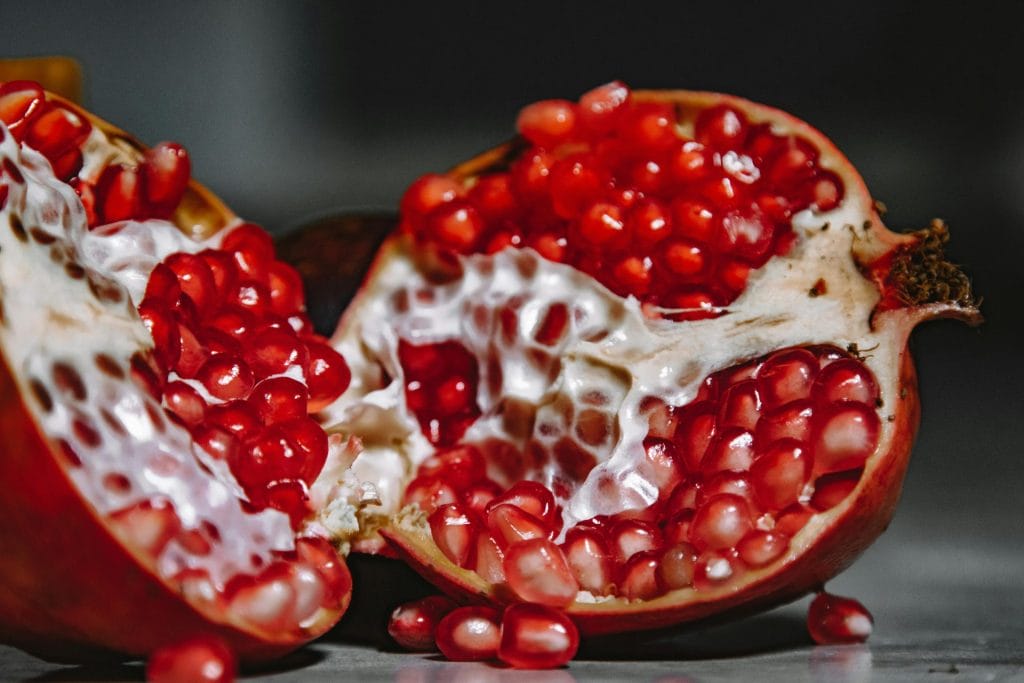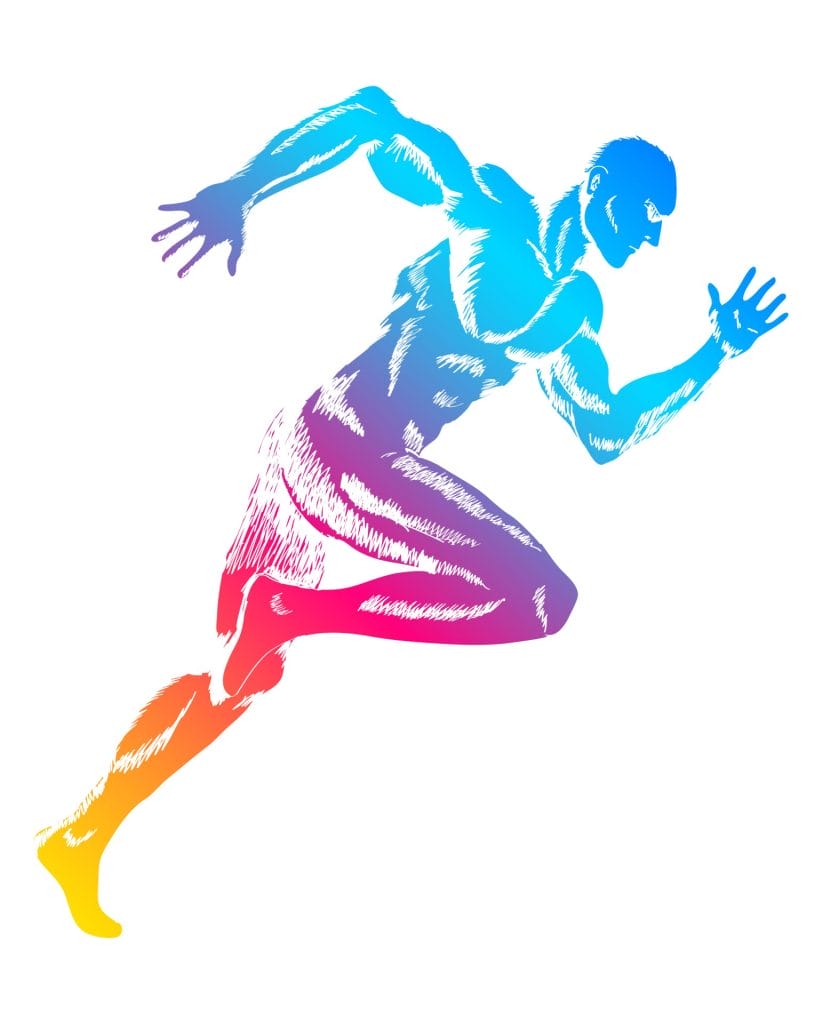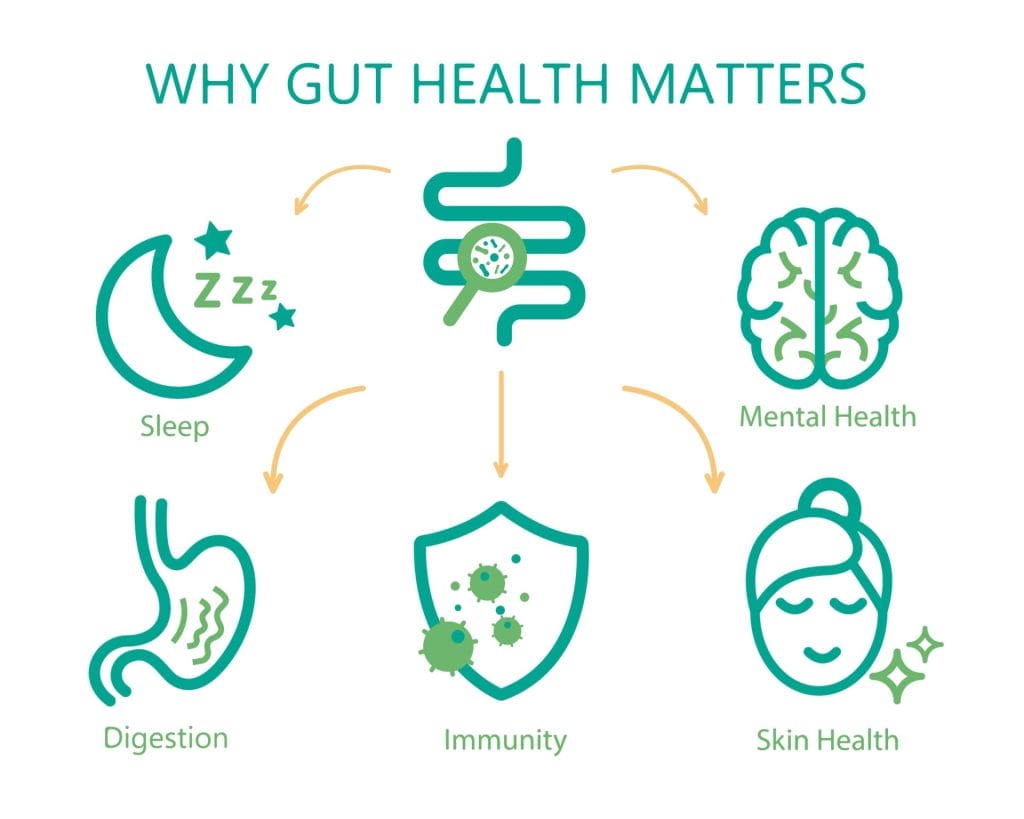You’re committed to your plant-based lifestyle, but lately, you’ve been feeling exhausted by midday. Your energy crashes unexpectedly, your hair seems thinner, and despite eating what you think is a healthy vegan diet, something feels off. You’re not alone – and you’re not imagining it.
The Problem: Hidden Nutritional Gaps in Your Plant-Based Diet
As a woman following a vegan lifestyle, you face unique nutritional challenges that many people don’t realize exist. While plant-based diets offer incredible health benefits, they can create specific deficiencies that disproportionately affect women’s health and well-being.
The reality is sobering: research shows that vegan diets are associated with low intake of vitamins B2, Niacin (B3), B12, D, iodine, zinc, calcium, potassium, and selenium, with vitamin B12 intake among vegans being significantly lower (0.24–0.49 μg) compared to the recommended 2.4 μg [1]. For women, this problem is compounded by monthly menstrual cycles, higher iron needs, and hormonal fluctuations that increase nutritional demands.

Iron deficiency is the most common dietary deficiency in women and can lead to anemia. According to the Centers for Disease Control and Prevention (CDC), anemia affects approximately 10% of women of reproductive age in the U.S. [2]. When you’re vegan, your risk skyrockets because plant-based iron (non-heme iron) is significantly harder for your body to absorb than iron from animal sources.
But iron isn’t your only concern. Studies indicate that up to 80–90% of vegetarians and vegans may be deficient in vitamin B12 [3], a crucial nutrient for nerve function, red blood cell formation, and DNA synthesis. Vitamin D deficiency affects almost one out of four people, with levels too low for bone and overall health [4]. As a vegan woman, you’re fighting an uphill battle against multiple potential deficiencies.
Agitating the Problem: The Hidden Costs of Nutritional Deficiencies
These aren’t just numbers on a lab report – they’re impacting your daily life in ways you might not even realize. Let’s dig deeper into what these deficiencies are actually doing to your body, your energy, and your long-term health.
The Energy Drain You Can’t Explain
That afternoon crash isn’t just about needing more coffee. Iron deficiency can cause surprising symptoms that make it tough to get through the day, including fatigue, weakness, and difficulty concentrating [5]. When your body doesn’t have enough iron to produce adequate healthy red blood cells, every cell in your body receives less oxygen. You’re literally running on empty, no matter how much you sleep or how well you eat.

Vitamin B12 deficiency compounds this problem. B12 is essential for blood formation, as well as brain and nerve function. Every cell in your body needs B12 to function normally [6]. Without adequate B12, you might experience:
- Persistent fatigue that doesn’t improve with rest
- Brain fog and difficulty concentrating
- Memory problems
- Mood changes and irritability
- Weakness in your arms and legs
The Bone Health Crisis You Can’t See
Calcium deficiency can lead to osteoporosis, which weakens bones and increases the risk of fractures. According to the National Osteoporosis Foundation, about 80% of people with osteoporosis are women [7]. The problem with calcium deficiency is that you often won’t know until it’s too late – until you’ve experienced a fracture or significant bone loss.
Vitamin D deficiency makes this worse. Vitamin D helps the body absorb calcium and is vital for bone health. With chronic and/or severe vitamin D deficiency, a decline in calcium and phosphorus absorption by your intestines leads to hypocalcemia (low calcium levels in your blood) [8]. Your body then takes calcium from your bones to maintain blood levels, leading to accelerated bone loss.
The Hormonal Havoc and Reproductive Health Impact
As a woman, your nutritional needs fluctuate throughout your menstrual cycle. Women are especially vulnerable to iron deficiency because we menstruate and lose blood at least once a month [9]. The recommended daily iron intake for women aged 19-50 is 18 mg – that’s 10 mg more than men the same age need.
But it’s not just about iron. Folate deficiency can impact fertility and pregnancy outcomes. Pregnant women and women who are breastfeeding have higher requirements for many micronutrients – especially nutrients like folate, iron, calcium, zinc, magnesium and iodine [10].

The Long-Term Health Consequences
Recent research has shown that avoiding all animal foods may lead to nutritional deficiencies in vitamin B12, omega-3, calcium, zinc, iron, magnesium, and high-quality protein. These deficiencies may be associated with increased risk for certain types of cancer, stroke, bone fractures, preterm birth, and failure to thrive [11].
The study also found that avoiding animal-sourced foods may be related to higher rates of depression and anxiety. Hair loss, weak bones, muscle wasting, skin rashes, hypothyroidism, and anemia are other issues that have been observed in those strictly following a vegan diet [12].
This isn’t meant to scare you away from your plant-based lifestyle – it’s meant to empower you with knowledge so you can thrive on a vegan diet.
The Resolution: Your Complete Guide to Vegan Multivitamins for Women
The good news? You don’t have to choose between your ethical values and your health. With the right vegan multivitamin specifically formulated for women’s needs, you can bridge these nutritional gaps and feel your best while staying true to your plant-based lifestyle.
What Makes a Vegan Multivitamin Different
Not all multivitamins are created equal, and definitely not all are vegan. Many traditional multivitamins contain:
- Gelatin capsules (made from animal bones and cartilage)
- Vitamin D3 from lanolin (sheep’s wool)
- Vitamin B12 from animal sources
- Non-vegan excipients and fillers
Vegan multivitamins are made without animal-derived ingredients and are perfect for those following plant-based diets [13]. They use plant-based alternatives like:
- Cellulose capsules instead of gelatin
- Vitamin D3 from algae sources
- Methylcobalamin B12 from bacterial fermentation
- Plant-based minerals in highly bioavailable forms
Key Nutrients Every Vegan Woman Needs
When choosing a vegan multivitamin, women should look for multivitamins that address common nutrient deficiencies, such as vitamin D, calcium, magnesium, and iron [14]. Here are the essential nutrients your vegan multivitamin should contain:
1. Vitamin B12 (Methylcobalamin)
Vegans are at higher risk of deficiencies in B12. Vitamin B12 is included in the superior, more absorbable form of Methylcobalamin [15]. Look for at least 2.4 μg, though many vegan multivitamins provide higher amounts to ensure adequate absorption.
2. Iron (Bisglycinate Form)
Vegans are at higher risk of deficiencies in Iron. The highest strength Iron Bisglycinate offers superior bioavailability of 90% vs standard Iron forms and is also easier on the gut [16]. Women aged 19-50 need 18 mg daily, while women over 50 need 8 mg.
3. Vitamin D3 (From Algae)
Vitamin D is rarely vegan. The solution is to look for an algae source of Vitamin D3 [17]. Look for 1000-2000 IU daily, especially if you live in northern climates or spend most of your time indoors.
4. Calcium and Magnesium
These work together for bone health. Calcium is essential for every cell in your body. It mineralizes bones and teeth, especially during times of rapid growth [18]. Look for 200-500 mg of calcium and 100-200 mg of magnesium.
5. Zinc
Zinc is an important mineral involved in various bodily functions – growth and development as well as immune function [19]. Aim for 8-11 mg daily.
6. Omega-3 Fatty Acids (DHA and EPA from Algae)
Vegan DHA from algae sources provides the same omega-3 fatty acids found in fish oil, but from a sustainable, plant-based source [20].
7. Iodine
Iodine is essential to make thyroid hormones. These hormones control your metabolic rate [21]. Many vegans are deficient in iodine since they avoid iodized salt and seafood.
Glam Dust
Radiant Skin – Luscious Hair – Pristine Nails
Vitamin Shots
The ultimate brain and body supplements
Vitamin Sprinkles
The ultimate brain and body supplements
Fitness nutrient supplements
Protein powder, creatine, whey, whey protein, best sellers, build muscle
Protein powder, creatine, whey, and whey protein are among the best sellers in sports nutrition because they help build muscle and support muscle growth through increased protein intake and muscle protein synthesis. The International Society of Sports Nutrition and the Academy of Nutrition and Dietetics recommend nutritional supplements like whey protein powder, BCAAs, and HMB for bodybuilding, sports performance, and improving performance in healthy adults and healthy young men. Sports nutrition supplements and performance nutrition products have been shown through a systematic review and meta-analysis by the American College of Sports Medicine to reduce muscle damage, stimulate muscle repair, and enhance human performance during resistance training programs and endurance exercise performance.
Workout supplements, improve performance, weight loss supplements, muscle mass, sports nutrition supplements, muscle creatine

Workout supplements such as sports drinks, preworkout supplements, amino acid supplementation, and supplementation on endurance are used to enhance exercise and provide energy during exercise for overall health and fitness goals. Studies show that high-intensity resistance training combined with high-intensity exercise lasting several minutes and containing carbohydrates and electrolytes can increase muscle mass and strength, lean body mass, and muscle performance in young and elderly populations. The review of studies from the International Olympic Committee, Van Loon LJ, and the Dietitians of Canada notes that naturally occurring compounds, vitamins and minerals, and other dietary supplements support muscle recovery, muscle glycogen replenishment, and recovery from exercise. This is vital for muscle repair, increases in muscle strength, improved muscle function, and reducing lower muscle fatigue, muscle ph imbalance, and overall enhanced muscle adaptation in human skeletal muscle after a fitness routine, sport training, and aerobic fitness programs.
How to Choose the Right Vegan Multivitamin for You
When selecting your vegan multivitamin, consider these factors:
1. Bioavailability
When choosing a multivitamin, checking the ingredients label for bioavailability is crucial. B vitamins are more readily absorbed in methylated forms, so look for B12 listed as methylcobalamin and B9 as methylfolate [26]. For minerals, look for chelated forms like magnesium glycinate or iron bisglycinate.
2. Third-Party Testing
To guarantee that your multivitamin contains the right ingredients and dosages, choose a product that’s third-party tested for purity and potency. Look for trusted certifications from organizations like NSF, USP or Informed Choice [27].
3. Form and Convenience
Consider whether you prefer tablets, capsules, or gummies. The best multivitamin is the one you’ll actually take [28]. Some people find capsules easier to swallow, while others prefer the taste of gummies.
4. Age and Life Stage
Gender- and age-specific options can help address unique requirements, like higher iron for women or increased vitamin D for older adults [29]. Look for formulations specifically designed for your age group and life stage.
Maximizing Absorption: When and How to Take Your Vegan Multivitamin
To get the most benefit from your vegan multivitamin:
- Take with food to improve absorption of fat-soluble vitamins (A, D, E, K)
- Don’t take with calcium-rich foods if your multivitamin contains iron, as calcium can inhibit iron absorption
- Take with vitamin C-rich foods to enhance iron absorption
- Be consistent – take your multivitamin at the same time each day
- Store properly – keep in a cool, dry place away from direct sunlight
Additional Supplements to Consider
While a good vegan multivitamin covers most bases, you might need additional supplementation for:
- Extra B12: Many experts recommend 250-500 μg daily for vegans
- Algae-based omega-3: If your multivitamin doesn’t contain adequate DHA/EPA
- Vitamin D: You might need additional D3, especially in winter months
- Iron: Women with heavy periods might need extra iron supplementation
Common Myths About Vegan Multivitamins Debunked
Myth 1: “You can get everything from food” While a well-planned vegan diet can provide most nutrients, certain conditions or dysfunctions in our bodies may reduce how much we can digest and absorb nutrients from even the most balanced diet [30].
Myth 2: “Synthetic vitamins are inferior” The debate over which is better remains ongoing, but some studies suggest that whole-food-based nutrients may be easier for the body to absorb [31]. However, synthetic vitamins can be just as effective when properly formulated.
Myth 3: “More is always better” Taking excessive amounts of vitamins can actually be harmful. Stick to recommended dosages and consult with a healthcare provider if you think you need higher amounts.
Signs Your Vegan Multivitamin Is Working
Within 4-12 weeks of consistent use, you should notice:
- Increased energy levels throughout the day
- Improved mood and mental clarity
- Better sleep quality
- Stronger hair and nails
- More stable energy without afternoon crashes
- Improved exercise performance and recovery
The Environmental and Ethical Benefits
Choosing vegan multivitamins aligns with your values while supporting your health. A plant-based diet significantly reduces land use, water consumption, and greenhouse gas emissions, contributing to environmental sustainability [32].
Glam Dust
Radiant Skin – Luscious Hair – Pristine Nails
Vitamin Shots
The ultimate brain and body supplements
Vitamin Sprinkles
The ultimate brain and body supplements
Conclusion
Living a healthy, vibrant life on a plant-based diet isn’t just possible – it’s achievable when you have the right nutritional support. The key is recognizing that as a vegan woman, you have unique nutritional needs that require thoughtful supplementation.
By choosing a high-quality vegan multivitamin specifically formulated for women, you’re not just filling nutritional gaps – you’re investing in your long-term health, energy, and well-being. Remember, the best multivitamin is one that contains bioavailable forms of nutrients your body can actually use, from a brand you can trust, at a price point that allows for consistent daily use.
Don’t let nutritional deficiencies hold you back from living your best plant-based life. With proper supplementation, you can thrive on a vegan diet while maintaining optimal health, boundless energy, and the peace of mind that comes from aligning your nutrition with your values.
Your journey to optimal vegan nutrition starts with a single daily capsule. Choose wisely, stay consistent, and watch as your energy, health, and vitality flourish on your plant-based journey.
Frequently Asked Questions (FAQ)
Q: Do I really need a multivitamin if I eat a well-balanced vegan diet?
A: Even with a well-planned vegan diet, certain nutrients like vitamin B12, iron, and vitamin D can be challenging to obtain in adequate amounts from food alone. Research shows that up to 80-90% of vegans may be deficient in B12, and iron deficiency affects 10% of women of reproductive age. A multivitamin acts as nutritional insurance to fill these gaps.
Q: What’s the difference between vegan and regular multivitamins?
A: Vegan multivitamins use plant-based sources for all ingredients and avoid animal-derived components like gelatin capsules, lanolin-sourced vitamin D3, and animal-based B12. They also often contain higher amounts of nutrients that are harder to obtain on plant-based diets, such as iron, B12, and algae-based omega-3s.
Q: When is the best time to take my vegan multivitamin?

A: Take your multivitamin with food to improve absorption of fat-soluble vitamins (A, D, E, K). Morning with breakfast is ideal for most people, but consistency matters more than timing. If your multivitamin contains iron, avoid taking it with calcium-rich foods or beverages, as calcium can inhibit iron absorption.
Q: Can I take too much of a vegan multivitamin?
A: Yes, it’s possible to overconsume certain vitamins and minerals. Stick to the recommended dosage on the label and avoid taking multiple supplements that contain the same nutrients unless advised by a healthcare provider. Fat-soluble vitamins (A, D, E, K) can accumulate in the body and cause toxicity if taken in excessive amounts.
Q: How long does it take to see results from a vegan multivitamin?
A: Most people notice improvements in energy levels and overall well-being within 4-12 weeks of consistent use. However, correcting severe deficiencies may take several months. Blood tests can help monitor your nutrient status and track improvements objectively.
Q: Are vegan multivitamins more expensive than regular ones?
A: Vegan multivitamins may cost slightly more due to specialized ingredients like algae-based omega-3s and vitamin D3, but the price difference is often minimal. Many quality vegan multivitamins are competitively priced, especially when purchased through subscription services.
Q: Should I consult a doctor before starting a vegan multivitamin?
A: It’s always wise to consult with a healthcare provider, especially if you have existing health conditions, take medications, or have specific concerns about nutrient deficiencies. They can recommend blood tests to identify any deficiencies and help you choose the right supplementation strategy.
Q: Can pregnant or breastfeeding women take vegan multivitamins?
A: Pregnant and breastfeeding women have increased nutritional needs and should use prenatal vitamins specifically formulated for their life stage. Many brands offer vegan prenatal options, but always consult with your healthcare provider before starting any new supplements during pregnancy or breastfeeding.
Q: What should I look for on the label of a vegan multivitamin?
A: Look for third-party testing certifications (USP, NSF, or similar), vegan certification, bioavailable forms of nutrients (like methylcobalamin for B12 and bisglycinate for iron), and appropriate dosages for your age and gender. Avoid products with excessive fillers, artificial colors, or allergens you’re sensitive to.
Q: Can children take vegan multivitamins designed for adults?
A: No, children should only take multivitamins specifically formulated for their age group. Adult formulations may contain too much of certain nutrients for children. Several brands offer vegan multivitamins designed specifically for children and teens.
Glam Dust
Radiant Skin – Luscious Hair – Pristine Nails
Vitamin Shots
The ultimate brain and body supplements
Vitamin Sprinkles
The ultimate brain and body supplements
References
[1] Niklewicz A, et al. (2020). Intake and adequacy of the vegan diet. A systematic review of the evidence. Clinical Nutrition, 40(5), 3503-3521.
[2] University of Miami Health System. (2024). Common Vitamin Deficiencies For US Women. Comprehensive Women’s Health Alliance.
[3] Healthline. (2023). 7 Nutrient Deficiencies That Are Incredibly Common. Nutrition Review.
[4] Cleveland Clinic. (2023). Vitamin D Deficiency: Causes, Symptoms & Treatment. Health Information.
[5] Healthline. (2017). Nutrient Deficiency in Women: 6 Common Vitamins and Minerals. Women’s Health.
[6] Cleveland Clinic. (2022). Vitamin B12 Deficiency: Symptoms, Causes & Treatment. Health Information.
[7] University of Miami Health System. (2024). Common Vitamin Deficiencies For US Women. Women’s Health Services.
[8] Cleveland Clinic. (2023). Vitamin D Deficiency: Causes, Symptoms & Treatment. Endocrinology.
[9] Healthline. (2017). Nutrient Deficiency in Women: 6 Common Vitamins and Minerals. Nutrition.
[10] Dr. Axe. (2024). What You Need to Know About the Most Common Nutrient Deficiencies in Women. Women’s Nutrition.
[11] Saint Luke’s Health System. (2024). Research Shows Vegan Diet Leads to Nutritional Deficiencies, Health Problems. Cardiovascular Research.
[12] Saint Luke’s Health System. (2024). Research Shows Vegan Diet Leads to Nutritional Deficiencies, Health Problems. Mid America Heart Institute.
[13] Yahoo Lifestyle. (2025). Best multivitamin of 2025, tested and reviewed by a registered dietitian. Health & Wellness.
[14] Prevention. (2025). 7 Best Multivitamins for Women 2025, According to Dietitians. Health.
[15] Form Nutrition. (2025). Multi – Vegan Multivitamin and Immunity. Product Information.
[16] Form Nutrition. (2025). Multi – Vegan Multivitamin and Immunity. Supplement Facts.
[17] Form Nutrition. (2025). Multi – Vegan Multivitamin and Immunity. Ingredient Sourcing.
[18] Healthline. (2023). 7 Nutrient Deficiencies That Are Incredibly Common. Nutrition Science.
[19] Better Health Channel. (2024). Vitamins and minerals. Government Health Information.
[20] Form Nutrition. (2025). Multi – Vegan Multivitamin and Immunity. Omega-3 Information.
[21] Better Health Channel. (2024). Vitamins and minerals. Iodine Information.
[22] Medical News Today. (2025). The Best Multivitamin for Women: 8 Options for 2025. Health Reviews.
[23] The Good Trade. (2025). The 10 Best Organic Multivitamins For Women In 2025. Product Reviews.
[24] Yahoo Lifestyle. (2025). Best multivitamin of 2025, tested and reviewed by a registered dietitian. Future Kind Review.
[25] VegFAQs. (2025). The 6 Best Vegan Multivitamins in 2025, Reviewed & Ranked. DEVA Review.
[26] Yahoo Lifestyle. (2025). The best multivitamin for women for 2025, tested and reviewed by a dietitian. Bioavailability Information.
[27] Yahoo Lifestyle. (2025). The best multivitamin for women for 2025, tested and reviewed by a dietitian. Third-Party Testing.
[28] Yahoo Lifestyle. (2025). Best multivitamin of 2025, tested and reviewed by a registered dietitian. Form Considerations.
[29] Yahoo Lifestyle. (2025). Best multivitamin of 2025, tested and reviewed by a registered dietitian. Age-Specific Information.
[30] Yahoo Lifestyle. (2025). Best multivitamin of 2025, tested and reviewed by a registered dietitian. Absorption Factors.
[31] Yahoo Lifestyle. (2025). Best multivitamin of 2025, tested and reviewed by a registered dietitian. Synthetic vs Whole Food.
[32] PubMed. (2025). Analytical Review on Nutritional Deficiencies in Vegan Diets: Risks, Prevention, and Optimal Strategies. Environmental Benefits.




.png)
